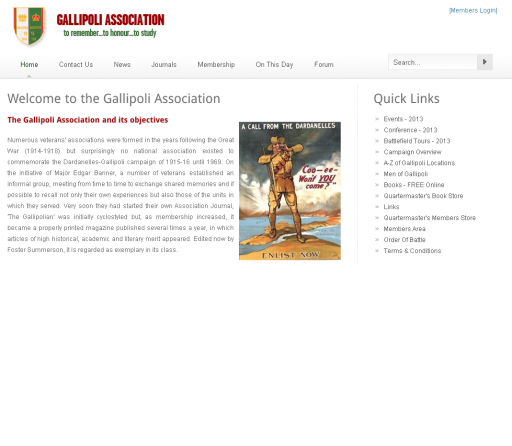The 98th anniversary of the start of the First World War Gallipoli Campaign was marked with services at Hyde Park Corner, St. Paul’s Cathedral, the Cenotaph and Westminster Abbey in London on 25th April 2013.
The Campaign saw landings made at Gallipoli in the Ottoman Empire in 1915 by British, French, Australian, New Zealand, Indian and other British Imperial forces, which suffered heavy losses.
A dawn service was held at Hyde Park Corner at the Australian War Memorial, with His Royal Highness the Duke of Kent in attendance.
The UK based Gallipoli Association held a wreath-laying ceremony at the Gallipoli Memorial in the crypt of St. Paul’s Cathedral, which was erected by the Association in 1995.
The memorial at St. Paul’s Cathedral was attended by the High Commissioners of Australia and New Zealand, the Defence Attaché of France, and the Turkish Ambassador.
Furthermore, Andrew Robathan MP, Minister of State for the Armed Forces, Admiral Sir George Zambellas, First Sea Lord and Chief of Naval Staff, Major General Ewan Carmichael, Director General Army Medical Services (representing General Sir Peter Wall), also attended the wreath laying ceremony at St. Paul’s Cathedral.
At the Cenotaph in Whitehall at 11:00am, a two minute silence was held, followed by a parade to mark the Gallipoli landings.
A service was later held at Westminster Abbey.
The 25th April is marked in Australia and New Zealand as ‘Anzac Day’, whilst it is known as ‘Gallipoli Day’ in countries such as Britain.
‘Gallipoli Day’ is described as an “all-inclusive” term for “all those who took part [in the Gallipoli landings]”, by Captain Christopher Fagan of the Gallipoli Association.
Exact figures of losses are still debated, but is estimated that the British suffered 170,000 casualties, 29,000 of which were killed, out of an invasion force of 410,000. Although this figure for the total invasion force also includes some Imperial troops.
French losses were approximately 47,000 casualties, including 27,000 deaths, from an original invasion force of some 80,000 men.
The Gallipoli landings have taken a special prominence in Australia and New Zealand, which marked the landings in ceremonies across their nations.
However, Captain Fagan of the Gallipoli Association stressed that it was important to remember all forces which took part in the campaign as “there is such a popular misconception that Gallipoli was an Anzac-lead affair and that British troops were not involved”.
Images courtesy of the Gallipoli Association website
Source for figures: The Gallipoli Association
Posted by: Daniel Barry, Centenary News
